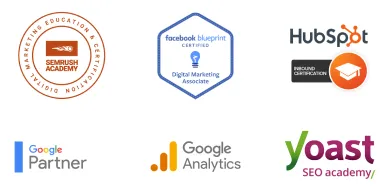TO LEARN IS TO GROW
Learning Center
We do our research and publish our results. Should probably call this the Growing Center.


How Long Should A Blog Article (Really) Be?
How long are my blog articles supposed to be? If you have ever found yourself asking this question — whether you are blogging for yourself or for a client — you are not alone. So many different sources say so many different things (and suddenly everyone is an expert on blogging) that you don’t know which ones to take pointers from.
Before we proceed, let’s get one thing straight: when you blog, the most important thing is coming up with good writing.
This is your main priority as a digital marketer. Once you have put together quality content that’s good for either your personal brand or the brand/business you are working for, then go down the SEO checklist and make sure everything else is in place.
It won’t matter if you got the right word count if the piece is riddled with bad grammar and a bad structure. That will backfire and make you or your client look bad and unprofessional instead.
So, again, your priority is coming up with a good piece whatever length it may end up being. You can fill in certain parts afterwards.
It’s bad enough that bloggers get a bad rap from journalists and grammar Nazis.
Our best piece of advice: be the exception.
Set the bar high with your work and you’ll go far in this line of work.
The Ideal Blog Post Length (According to Expert Sources)
How long ARE blog articles supposed to be? Here is what different sources say:
1. HubSpot
According to Hubspot, blog posts in 2020 should be between 2,100 and 2,400 words. This is data they came up with after calculating the length of their top 50 blogs posts of 2019. The magic number was 2,330 words, to be exact.
“Individual blog post lengths ranged from 333 to 5,581 words, with a median length of 2,164 words,” writes AJ Beltis.
One third of those top 50 blog posts in 2019 were less than 1,500 words, though, so, really, it boils down to good, compelling writing. SEO can still be amplified through:
Backlinking
Placing your keywords in the right places (including the Google snippet)
Embedding other media that can be attributed to their sources by linking
2. The Write Practice
The Write Practice is a blog about writing blogs and is a good source of blogger sentiment and discussions. They have a writing group or a community of bloggers you may join to interact and make new friends in the blogging world.
Author Joe Bunting says that the length of your blog post depends on your objective or what you want to get out of it:
If you want more comments or to start a discussion
Joe’s tip: “Try writing short, discussion-based posts no longer than 275 words long.”
This is not useful, though, if your goal is reader acquisition or growing the base of your audience.
If you want more social media shares
Joe’s tip: “Aim for medium length blog posts between 600 to 1,250 words.”
There are other factors that contribute to this goal: your topic, the quality of your writing, and the size of your audience who will be the first to share your content.
And remember, you must have an eye-catching, exciting title and a takeaway that is actually helpful to your readers.
If you want more traffic from Google
Joe’s tip: “Write longer, heavily researched posts 2,450 words long.”
He adds that search engines “love long, authoritative posts” that are out to solve problems for readers. This may be somewhat writing for a niche that still actually reads, much more a niche that readers articles this long. But they build credibility, authority, and reliability. And Google will take notice.
3. Neil Patel
Neil Patel is a digital marketer who is ever-so-generous with his tips and hacks especially for other digital marketers starting out or business wanting to grow online.
“There’s one thing I always want to make clear regarding word count,” Neil writes on this blog post of his. “It only matters if the content is good.”
He reiterates this later on in the same post: “…word count is only important when coupled with super high quality.”
While Neil does not deny that certain bloggers can get away with writing short blog posts and still get noticed by SEO, he is a big fan of long-form writing. According to Neil, the more words there are in a post, the higher the average shares it may get.
Here’s data from a study by BuzzSumo that shows 3,000 to 10,000 words is ideal:

Here’s data from a study by SerpIQ that shows about 2,450 words is ideal:

And here’s yet another data this time from Backlinko that shows the ideal word count for a “Google first-page result” is 1,890 words:

The numbers differ but what they have in common is that they are all long form.
Why does long form content work? Neil says it’s because of the depth of information it presents; the H2 headers that make it easy to scan; and they leave readers feeling like they learned something new, helpful, and useful. (There is a psychology to this, but we’ll delve on that in a different article.)
4. Yoast SEO
Yoast SEO (for everyone) is a WordPress plug-in specifically for SEO. According to them: “A higher word count helps Google to better understand what your text is about. And, generally speaking, Google tends to rank longer articles higher.”
But again, word count won’t matter if the writing and structure is poor. If you’ve ever read a bad and long article, then be empathetic to others and give them more quality writing that’s also an easy read.
For Yoast, high quality blog posts with 1,000 words or more can do the trick. And if you can go above and beyond and produce quality content with 2,500 words or more, that can be your cornerstone content (especially if it’s evergreen) that can bring in organic traffic for years.
Remember these 3 pointers from Yoast:
“The longer your (optimized) text, the more often your focus keyphrase appears.”
“A longer text might also help you rank for multiple long-tail variants of the keyphrase you’ve optimized your text for.”
“Smart internal linking can boost the traffic to the extensive post you’ve written. This will help you drive more organic traffic to your site.”
5. Blog Tyrant
Blog Tyrant prides itself in “helping bloggers get started for 10 years.” They are all about helping bloggers earn more income by providing SEO and digital marketing strategies.
Unsurprisingly, Blog Tyrant declares that “long form content is king.”
They cite IsItWP when stating that the average blog post length is 1,151 words. They also cite Buffer that says the optimal length is 1,600 words. While in Medium, the optimal blog post is one that can be read in 7 minutes.
Blog Tyrant says some benefits of long form posts are:
They increase time spent on the page and, therefore, the website
They get more social media shares (probably because they imparted useful, well-researched information)
They improve ranking in search engine results with relevant keywords
A Final Word on How Long Your Blog Posts Should Be
So, the answer to the question, “How long are my blog articles supposed to be?” is upwards of 1,000 words of excellent writing.
If you don’t know where to begin, focus first on your research then create a structure or outline that will make it easier for you to write (which will then make it easier for people to read).
Then again, there are exceptions to this rule: many “social media journalists” who break news on social media or who write for news organizations that use blog templates only need to write what the people should know, especially if it’s breaking news.
They even sometimes share updates with a mere quote from a press conference.
The long and short of it is that it is up to you (your objectives), up to what you do (if you blog for yourself, for a business, or as a journalist), and up to the level of commitment you have in writing blog posts that will rank high in SEO.
It’s not a one-of thing. It shouldn’t be piecemeal. And it’s not a sprint; it’s a marathon.
In short, when you start with it, stick with it. Find your rhythm. Consistency is key.
Growing Businesses Since 2008
We have helped hundreds of businesses just like yours. Working for or along-side of business owner, managers, staff, or even board of directors, LOJO is ready to be an asset to your business.
Our team has been curated through the years for individual skills, personalities, and capabilities. Our clients put their trust in us to help them grow. We are here to do just that.



Growing Businesses Since 2008
We have helped hundreds of businesses just like yours. Working for or along-side of business owner, managers, staff, or even board of directors, LOJO is ready to be an asset to your business.
Our team has been curated through the years for individual skills, personalities, and capabilities. Our clients put their trust in us to help them grow. We are here to do just that.




Matthew Rogers, President
iProspect Check
After spending several months reviewing multiple proposals from several different companies we engaged LOJO to develop a new website that represents our company effectively. We worked initially with Stephen Platte who helped create the scope of the project. Stephen was knowledgeable and always followed up with me on time and as promised.
He "closed the deal" for LOJO with his professionalism, service orientation and easy going approach. Once we signed the contract we were introduced to Jay Kelly who would be the creative lead for LOJO. This was the most challenging part of the project for my company, as there was no shortage of ideas from our side. Jay managed the project flawlessly, and once we had all agreed to the design, Jay introduced us to Eric.
Eric Lay is one of the founders of LOJO. Eric took the design we had developed and brought it to life. We delivered content as quickly as he requested it. Eric kept the project on task and we responded by exceeding every deadline for content. In turn, once provided, literally not a day went by that Eric didn't add the content and take the next step. In just a few weeks we launched our new website. Eric is a pleasure to work with.
His positive attitude and consultative approach really enhanced the experience and made a big difference for us in the outcome of our project. We would welcome you to visit our website to take a look at the quality work of LOJO. We are very pleased with LOJO and look forward to working with them in the future as we pursue an aggressive SEO strategy."
After spending several months reviewing multiple proposals from several different companies we engaged LOJO to develop a new website that represents our company effectively. We worked initially with Stephen Platte who helped create the scope of the project. Stephen was knowledgeable and always followed up with me on time and as promised.
He "closed the deal" for LOJO with his professionalism, service orientation and easy going approach. Once we signed the contract we were introduced to Jay Kelly who would be the creative lead for LOJO. This was the most challenging part of the project for my company, as there was no shortage of ideas from our side. Jay managed the project flawlessly, and once we had all agreed to the design, Jay introduced us to Eric.
Eric Lay is one of the founders of LOJO. Eric took the design we had developed and brought it to life. We delivered content as quickly as he requested it. Eric kept the project on task and we responded by exceeding every deadline for content. In turn, once provided, literally not a day went by that Eric didn't add the content and take the next step. In just a few weeks we launched our new website. Eric is a pleasure to work with.
His positive attitude and consultative approach really enhanced the experience and made a big difference for us in the outcome of our project. We would welcome you to visit our website to take a look at the quality work of LOJO. We are very pleased with LOJO and look forward to working with them in the future as we pursue an aggressive SEO strategy."

Matthew Rogers, President
iProspect Check
The team at LOJO were wonderful to work with. They are well organized and very patient as we worked through our marketing strategy and developed a well thought out and clear action plan at a reasonable price. We will definitely be back for our future campaign needs."

Jon Crosby, Founder
Dazil

